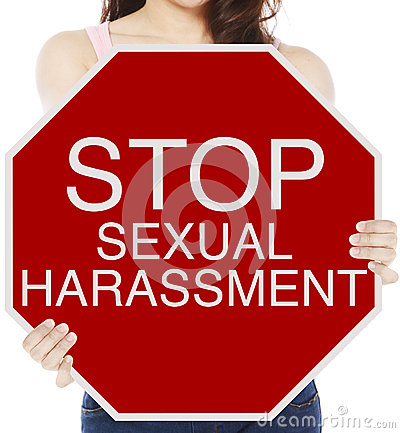
NEW YORK CITY, NY (TIP): Building on the foundation of the City’s historic “women and workplace” hearings of the 1970s which catalyzed a national movement to recognize and address sexual harassment in the workplace, New Yorkers from a variety of industries will testified on their experiences of sexual harassment and challenges in reporting it
The Commission will issue a report in the first half of 2018 with policy recommendations and findings on how the City can better address sexual harassment in the workplace.
New York City announced that the Commission on Human Rights, in partnership with CUNY School of Law and the New York Women’s Foundation, is holding a public hearing where advocates and individuals working in hospitality, retail, domestic work, construction, media and entertainment, fashion and modeling, among other industries, will testify about sexual harassment experiences in the workplace and the challenges they face in reporting it and obtaining justice. Those testifying included advocacy organizations serving some of New York City’s most vulnerable workers, including women in male-dominated industries, women of color, immigrant workers, and LGBTQ workers. The NYC Commission on Human Rights is the City agency that enforces the City’s anti-discrimination law, one of the most extensive civil and human rights law in the nation, which protects individuals against sexual harassment as a form of gender-based discrimination.
“Forty years after I served as New York City Human Rights Commissioner and held the first public hearings in the nation on discrimination against women, I could not be more pleased to see the Commission revisiting the issue, taking on the elusive issue of sexual harassment in the workplace,” said Congresswoman Eleanor Holmes Norton (D-DC). “Our country has made some progress since the Equal Employment Opportunity Commission first defined sexual harassment as workplace discrimination when I served as chair, but sexual harassment still pervades every workplace sector in America, including the halls of Congress, where I serve. I appreciate the Commission for once again leading the way on addressing sexual harassment, a significant form of discrimination in today’s workplace.”
This is the first public hearing on sexual harassment the NYC Commission on Human Rights has held since the 1970s when then Chair and Commissioner and now Congressmember (D-DC) Eleanor Holmes Norton, who will travel to New York City today to give opening remarks at the hearing, held the first public hearings in the nation on issues surrounding women and the workplace, which catalyzed a national movement to recognize and combat sexual harassment in the workplace. Held over forty years ago, these hearings led to stronger enforcement on sexual harassment in New York City, the creation of women’s organizations specifically to address and educate communities on this issue and the issuance of federal guidelines recognizing sexual harassment as sex discrimination.
New York City is home to one of the strongest anti-discrimination laws in the nation, the NYC Human Rights Law, which prohibits discrimination in housing, employment, public accommodations and also protects New Yorkers against discriminatory harassment and bias-based profiling by law enforcement. The NYC Human Rights Law is interpreted more broadly t than federal law with respect to sexual harassment. Federal courts have required that sexual harassment be “severe or pervasive,” to be unlawful, whereas under the NYC Human Rights include any unwanted sexual behavior such as sexual comments or jokes, gestures, touching, texts, or emails that create a hostile or offensive work environment. Additionally, victims of sexual harassment in New York City may file claims at the Commission even when they are bound by arbitration agreements that prevent them from filing cases in court.
The Commission has the authority to fine violators with civil penalties of up to $250,000 for willful and malicious violations of the Law and can award unlimited compensatory damages to victims, including emotional distress damages and other benefits. The Commission may also launch its own investigations into sexual harassment and discrimination on behalf of the City, in addition to claims brought forward by individuals.
Investigations into sexual harassment have increased by nearly 50 percent at the Commission over the last two years, with 109 claims filed in 2016/15 up from 73 in 2014/13. Commission is currently investigating 340 complaints of gender discrimination, of which 40 percent or 123 are claims of sexual and gender-based harassment, 85 percent of which are in the workplace. Over all, gender-based discrimination claims made up the third largest area of complaint at the Commission in 2016, roughly 12% of all claims.
For more information on the protections against sexual harassment and gender-based discrimination, read a factsheet and brochure on the Commission’s website at NYC.Gov/HumanRights, and these instructions on how to report sexual harassment.





Be the first to comment